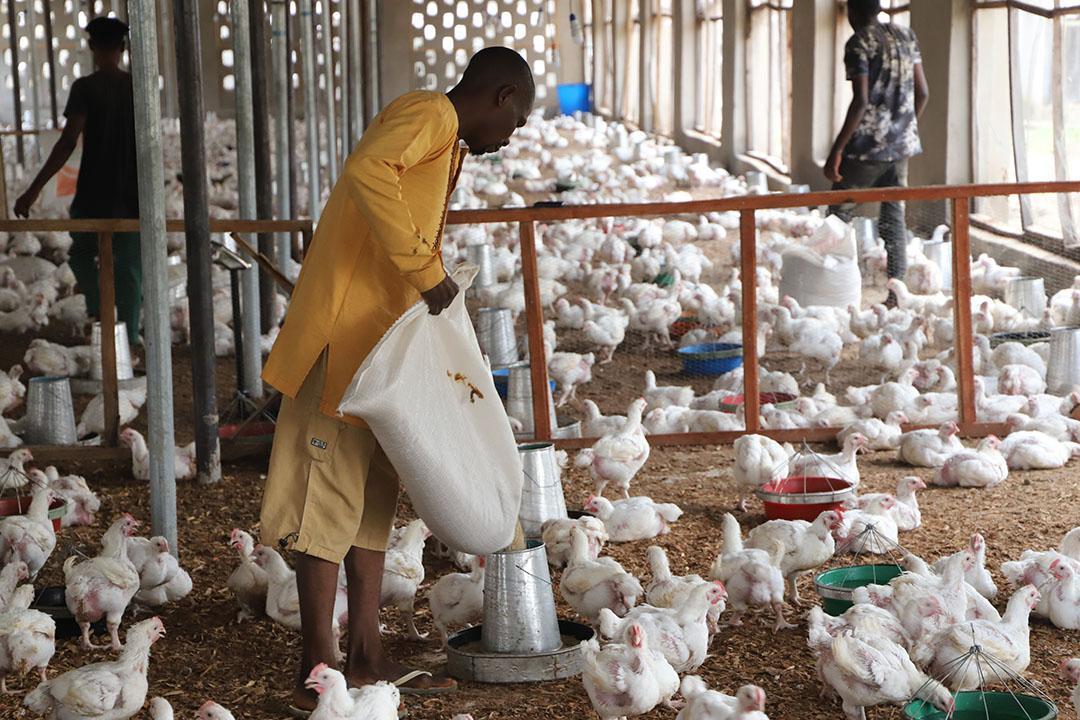By Abba Hamisu Sani
Africa-Press – Nigeria. Poultry is considered the most organized sub-sector within Nigeria’s livestock industry. What began as a rural activity has now evolved into a more commercially structured enterprise.
The industry provides a wide range of employment opportunities—from farm labor to management roles—and supports the livelihoods of thousands of Nigerians.
According to the United Nations Food and Agriculture Organization (FAO), Nigeria’s poultry sector is worth approximately $4.2 billion. However, the sector faces serious threats, particularly from the shortage of maize, a key ingredient in poultry feed.
Although the industry primarily serves the domestic market—with some informal trade occurring within the Economic Community of West African States (ECOWAS) sub-region—analysts believe it has the potential to access global markets with the right strategic interventions.
Export Potential
Junaidu Abdullahi Suleman, a livestock specialist, has outlined several ways Nigeria could enter the international poultry export market.
According to him, the next logical step for Nigeria’s poultry industry is to tap into the export market. Achieving this goal requires strict adherence to international food safety standards, including those outlined by the World Trade Organization’s Agreement on Sanitary and Phytosanitary (SPS) Measures, and the FAO/WHO Codex Alimentarius Commission, which regulates veterinary drug residues, pesticide use, food additives, and contaminants.
Competitive Advantage
Suleman pointed out that Nigeria’s poultry industry has a unique comparative advantage due to the depreciation of the naira, which lowers production costs. This makes Nigerian poultry meat an attractive option for export, especially to markets seeking affordable sources of protein.
He added that Nigeria could become one of Africa’s major chicken producers, and that adherence to international standards could unlock highly profitable export opportunities.
“With Nigeria partnering with JBS—the largest meat processing company in the world—under a $2.5 billion deal to build six state-of-the-art facilities for processing beef, pork, and poultry, the country has enormous potential to become a major player on the global stage,” he said.
Suleman emphasized that since JBS follows the Hazard Analysis and Critical Control Points (HACCP) system and is Good Manufacturing Practice (GMP) certified, Nigeria’s Federal Ministry of Livestock Development should adopt strategies similar to Thailand’s success story:
1. Strengthen Veterinary Services
Enforce strict sanitary standards
Conduct rigorous disease surveillance and regular testing
Cull infected animals to control outbreaks, especially avian influenza (AI)
Maintain a non-vaccination policy for AI, while enhancing farm management and biosecurity
Create digital platforms for veterinary service quality assurance and animal welfare
Develop Standard Operating Procedures (SOPs) for routine operations
2. Strengthen Animal Husbandry Services
Establish baseline data for participating farmers, farms, and companies
Promote vertical integration between small-scale and large commercial farms
Partner with financial institutions to offer innovative financing models
Facilitate access to livestock insurance to mitigate risks related to disease and climate events
3. Empower the Poultry Association of Nigeria (PAN)
Improve market information systems to provide real-time data on prices, demand, and consumer preferences through digital platforms and traditional media
Help farmers make informed decisions and reduce middlemen
Promote collective bargaining, access to quality inputs, and mentorship programs
Address recurring feed shortages
Suleman concluded that if these strategies are effectively implemented, they will open access to lucrative export markets and serve as a roadmap for engaging more complex sectors like beef exports.
Industry Voices
Sabi’u Muhammad, a poultry farmer with over 20 years of experience, called on the government to support the industry, emphasizing its potential to generate foreign exchange at a time when Nigeria urgently needs new revenue sources.
He noted that with the establishment of the Ministry of Livestock Development by President Bola Tinubu, the poultry industry now has a stronger platform for growth.
“In terms of export opportunities, the African Continental Free Trade Area (AfCFTA) is another gateway to expand poultry exports within Africa—a continent with over one billion people,” he stated.
Sabi’u also stressed that while thousands of youths are engaged in poultry farming, they need greater access to markets and affordable financing, ideally through zero or low-interest loans.
Conclusion
Industry stakeholders are urging the federal, state, and local governments to support maize farmers. Without adequate feed supply, poultry product prices will continue to rise, potentially driving many farmers out of business.
Nigeria’s partnership with the world’s largest meat processing company and the FAO’s valuation of the sector at $4.2 billion offer strong signs of a promising future—if the country can effectively address its current challenges.
For More News And Analysis About Nigeria Follow Africa-Press







